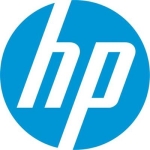We primarily use the solution as endpoint protection as well as for endpoint detection and response. It's like an EDR. It's basically used to prevent ransomware.
I would say that it's difficult to really say how it's improved our organization. We had never actually been hit by a ransomware attack prior to installing Sophos and never had Sophos tell us that we're experiencing one. That said, it's very important to be protected. Getting attacked would be a disaster.
We were looking for something that could sense ransomware attempts, to encrypt files, and cut off and reverse attacks as well as alert us to issues. That's what the Intercept X is designed to do. It's very good at security and protection. It offers very good reports.
The initial setup is simple.
The biggest feature that's on the server version that we're using, the EDR, is the ability to push data on threats that it's seeing over to another management platform, like a managed detection response service. It's nice that it's possible to do this and we don't have to pay so much attention to the alerts. They can for us.
It's a challenge to do system maintenance work on a notebook. You always have to disable Sophos first. Otherwise, it thinks you're a virus. It would be ideal if there was some sort of setting where you could warn the system it's just you in there doing routine maintenance.
I've used the solution over the last couple of years. However, I haven't used the product too heavily.
The stability is relatively good. We've had a few false alarms, however, there's nothing major that's happened so far. It seems free of bugs and glitches. It doesn't crash or freeze. It's good.
I haven't personally tried to scale anything. It's probably pretty scalable because you don't have an appliance. Appliances have limitations as they have a set size or capacity. It is a cloud-based console, therefore it can probably scale pretty well.
We have 80 people in our organization and everybody uses the product.
I'd rate technical support pretty high. I'd give them an eight out of ten. They're helpful. They are knowledgeable and responsive. We've been satisfied with the level of attention we get when we need them.
We didn't have anything previously for anti-ransomware. We just had the Kaspersky antivirus. However, it wasn't able to detect ransomware specifically. Therefore, we put Sophos Intercept X on to do that.
We've found the initial setup is pretty straightforward. It's not overly complex. We didn't have trouble setting everything up.
We're using the latest version of the solution.
We've got Sophos Intercept X on the notebook computers along with Kaspersky and then on the servers it's only Sophos EDR, which has both antivirus and Intercept X. All are bundled together.
The console's on the cloud and that's just installed on the clients, however, they all communicate with a self-hosted JIRA cloud console.
I'd advise those considering the solution to probably just go with the antivirus portion as well. That way, you've got it all under one console. We're juggling two consoles, Kaspersky and Sophos. It would be easier if everything was under one.
ON a scale from one to ten, I'd rate this product at a nine. We've been very happy with it.


















